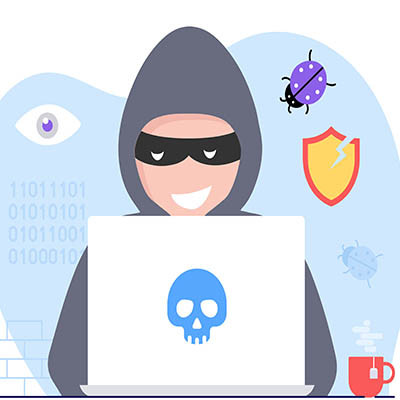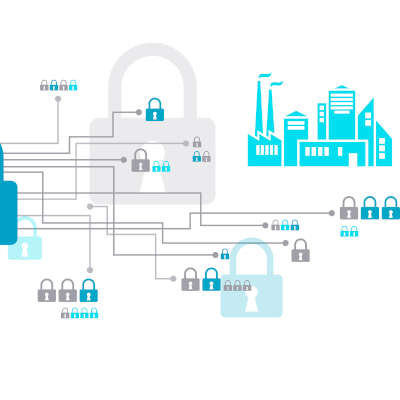Blog
Inertia Group, Inc. Blog
We’re all familiar with the idea that pop culture has cultivated in our minds about computer hackers, but as it happens, this impression is just one of the many shapes that the modern hacker can take. This kind of closed-off view is dangerously shortsighted, so let’s take a few moments to dig into the kinds of hackers there are, in ascending order of the threat they pose to your business.
Contemporary movies are filled with high-stakes cybercrime, where a lovable criminal syndicate breaks into a company’s systems to help wreak havoc on the true villains of the film, all the while exposing the company’s dirty laundry. Naturally, this idea can be frightening for any business, whether or not they have any dirty laundry to air out—after all, nobody wants a ruined reputation—and is unfortunately less and less of a fantasy all the time.
As commonly happens with any disaster, COVID-19 has inspired no short supply of scams. While these scams initially focused upon the relief funds that were delivered to people to help sustain the suffering economy, the ongoing vaccine distribution efforts have given those behind these efforts a new means of attack.
Recently, a story broke in Florida that sounds like something out of a terse action film: a hacker managed to access a water treatment facility and subjected the Pinellas County water supply with increased levels of sodium hydroxide. While onsite operators were able to correct the issue right away and keep the public safe from danger, this event is the latest in a line of cyberattacks directed at public utilities. Let’s consider this unpleasant trend.
Browser extensions are nifty little programs that can be implemented into your web browser itself, adding onto its capabilities and utility… at least, that’s the concept. Unfortunately, these programs also give cybercriminals a means of secretly launching an attack. The security firm Avast recently identified 28 such third-party extensions that have been installed—according to the download numbers, at least—by about three million people on Google Chrome and Microsoft Edge combined.
To effectively manage the risk that your business is under due to cybercriminals and their activities, it is important to acknowledge what attacks your business may soon have to deal with. Due to the increased accessibility of artificial intelligence and related processes, we predict that cybercrimes will likely use AI to their advantage in the very near future.
The COVID-19 pandemic has resulted in a great number of people working from home. While this is good for the public health, it may unfortunately lead your employees toward a laxer view of cybersecurity. Cybercriminals are sure to take advantage of this if you aren’t careful, so it is important to be particularly aware of your cybersecurity right now.
News & Updates
Understanding IT
Get the Knowledge You Need to Make IT Decisions
Technology is constantly evolving, and keeping up can feel overwhelming. Whether you want to understand cybersecurity threats, explore automation, or learn how regulations like PCI DSS impact your business, we’ve made it easy to access clear, straightforward insights on key IT topics.
Contact Us
Learn more about what Inertia Group, Inc. can do for your business.
Inertia Group, Inc.
15796 N.W. 11th Street
Pembroke Pines, Florida 33028








